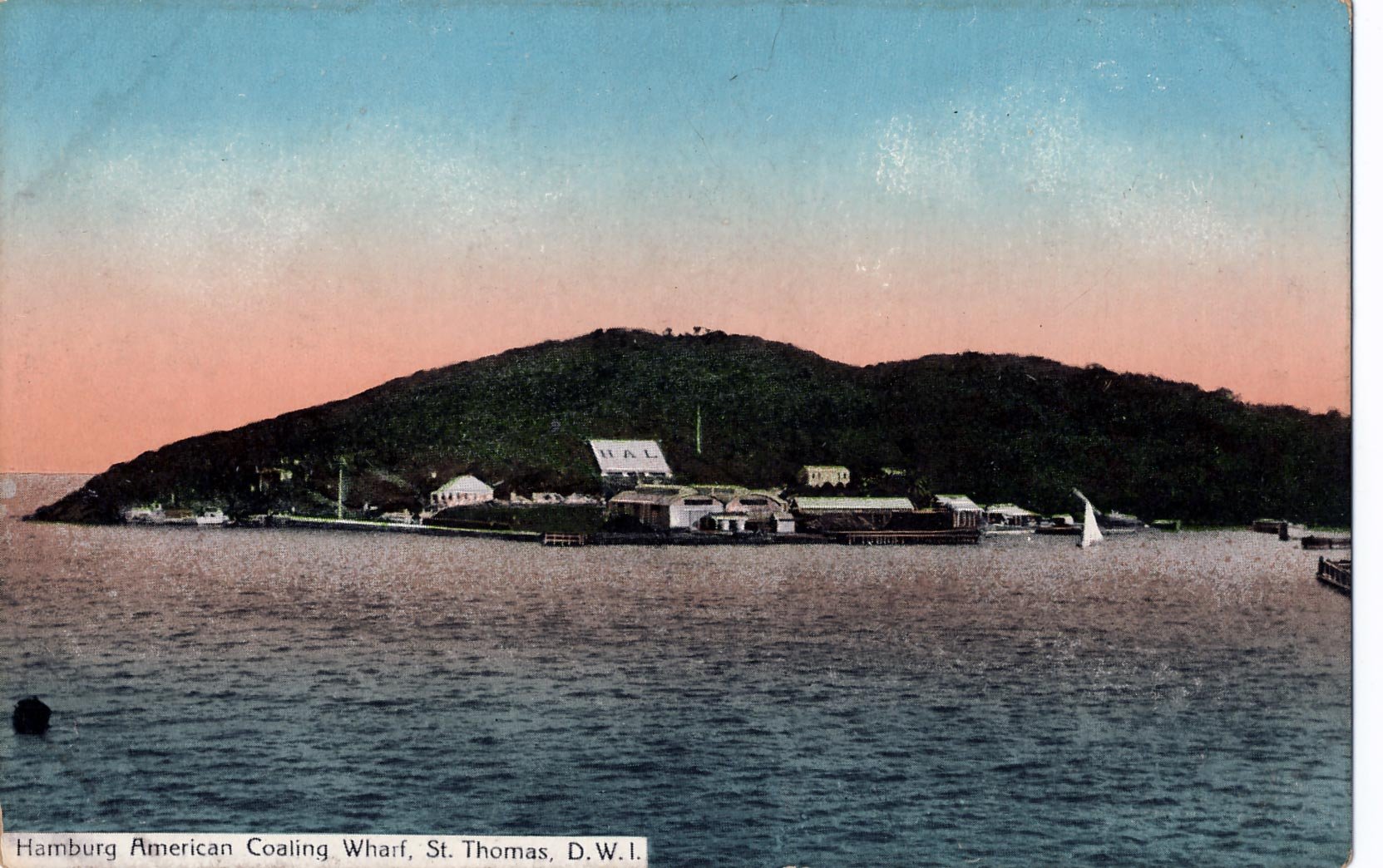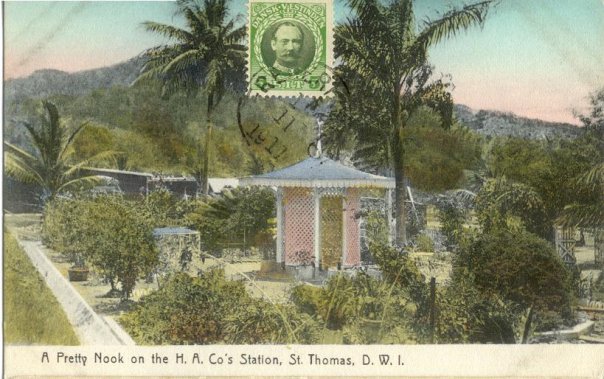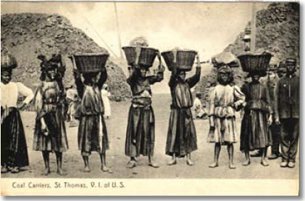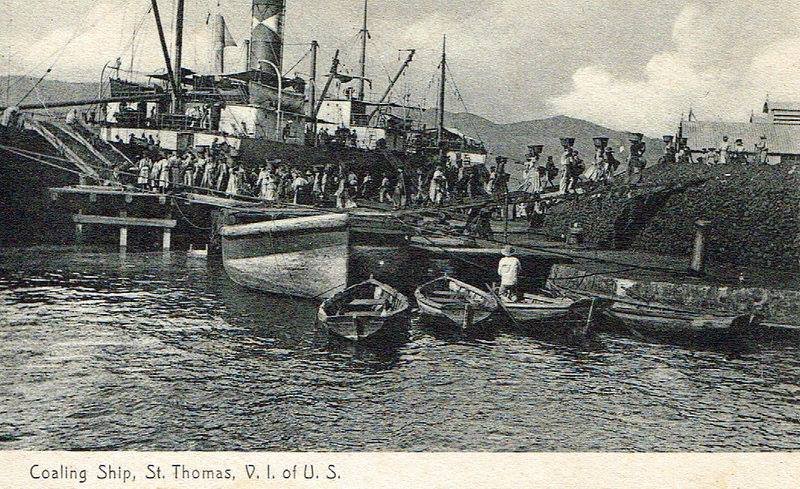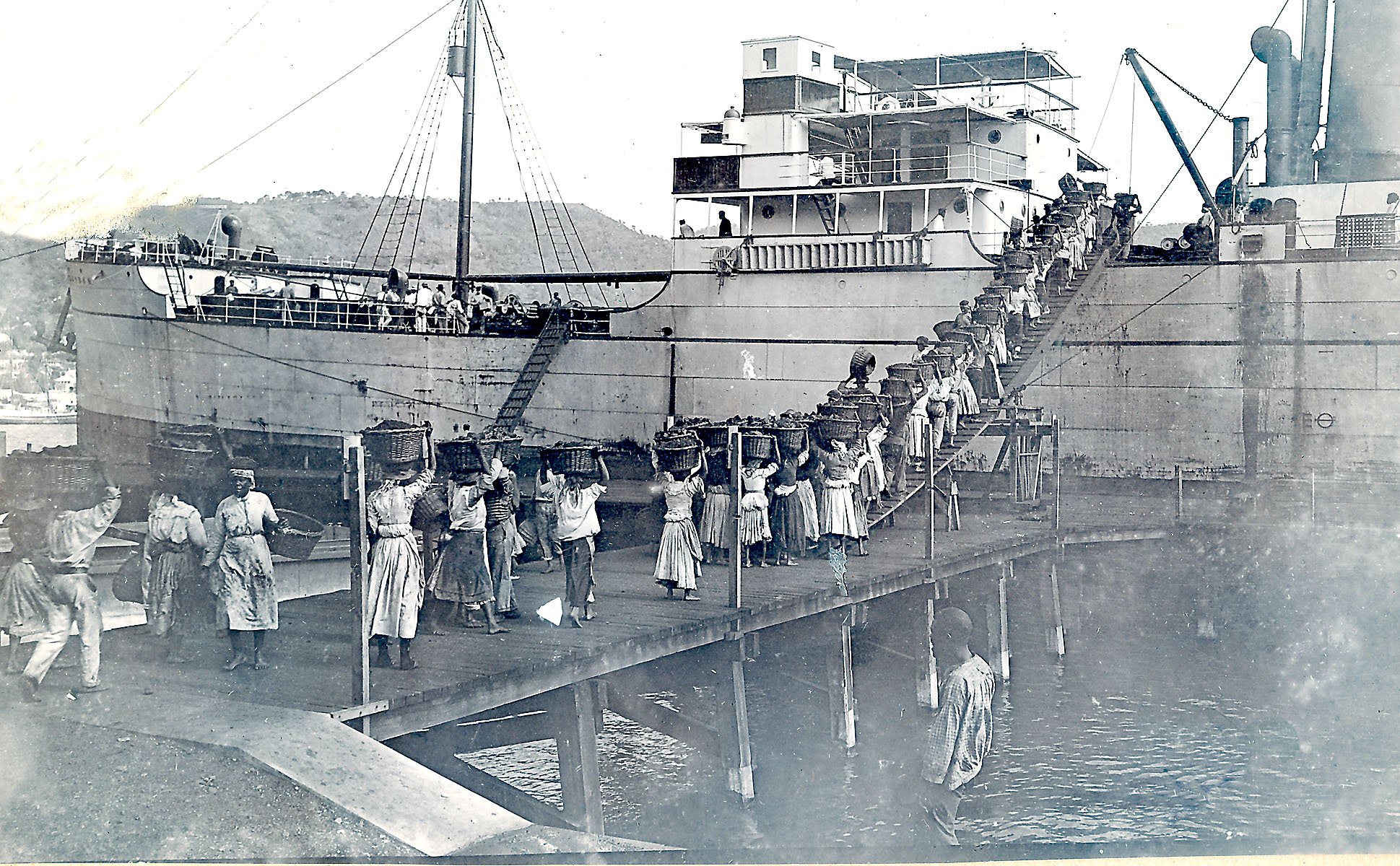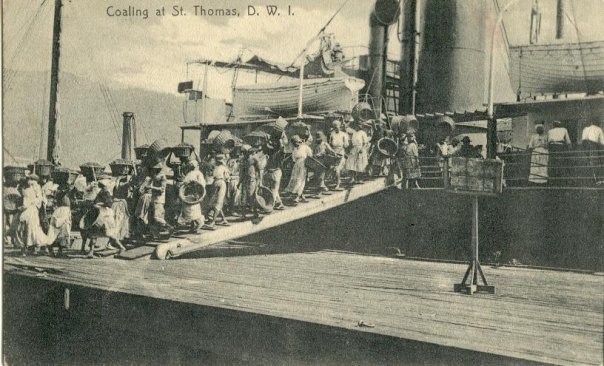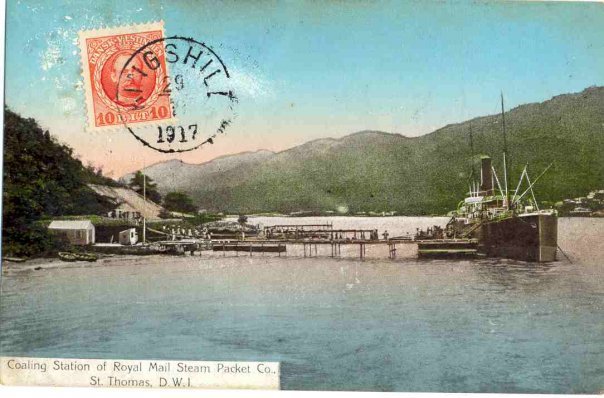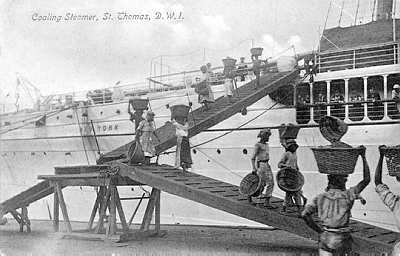The Coaling Ladies of St. Thomas
St. Thomas Coaling Ladies
Coaling began in the Virgin Islands in 1823, increasing the importance of the port of St. Thomas as many coaling companies established coal depots around St. Thomas' harbor.
The German Hamburg-American Line, the West Indies Coal Depot Company, the British Royal Mail Steam Packet Company, the East Asiatic Company and the Italian Bronsted Company all established operations here. Local men and women both worked for these companies, but it was the women who gained the most recognition; they became known as the "coaling ladies of St. Thomas."
The work was physically grueling. By the time an international steamship had docked alongside one of St. Thomas' wharves, these workers had each filled their large wicker baskets with coal from the depots. Often barefoot, they carried the loaded baskets, weighing up to 100 pounds, balanced roughly on their heads as they made their way to the docks. There they headed up a steep, narrow gangplank single file onto the ship, to register their load and deposit their load of coal in a chute before heading back down the same steep plank for another load.
These women earned 1 cent per basket and $1 a day (requiring 100 trips per day). They were paid with a coaling token stamped with the company's name, which would be traded at week's end for money. Although scarce, tokens can still be located in St. Thomas.
As time progressed, the Mexican dollar became more prominent in local commerce. Coaling companies continued to pay their workers with the Mexican Dollar up to the late 1800's even as this currency was losing value. On September 12, 1892, coaling workers stopped working and demanded to be paid with Danish silver. Along the street they shouted "Dollar for Dollar!" a chant which later became the name of an September march held yearly in the Virgin Islands.
The army and police became involved as the demonstration threatened to become violent. But before any bloodshed occurred, the coaling companies agreed to pay their workers in Danish silver. This bloodless strike lasted only one day.
Names of strikers? Most prominent coaling lady: Queen Coziah.
